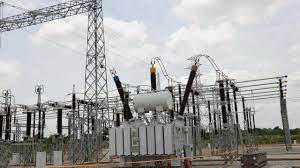 17 February 2014, Kigali – Rwandans have saved about Rwf5 billion following government’s decision to promote use of energy saving bulbs seven years ago, an official has said.
17 February 2014, Kigali – Rwandans have saved about Rwf5 billion following government’s decision to promote use of energy saving bulbs seven years ago, an official has said.
Appearing before Senate on Thursday, State Minister for Energy, Emma-Francoise Isumbingabo said since 2006, close to one million energy saving bulbs have been distributed to people either for free or at a highly subsided price.
“Since last year, we adopted a new policy to use these bulbs in all public institutions like schools, hospitals, offices and other public places but we ran out of funds. It required us about Rwf3.5 billion. We have resorted to requesting every institution to find money within their budgets and buy them,” she said.
Energy saving bulbs use 40 to 60 per cent less energy compared to the high pressure sodium (HPS) lamps.
Experts say a high pressure lamp consumes about 400 watts, a day, while an energy saver lamp consumes 112 watts.
Apart from saving energy, energy saving lamps are long-lasting and emit better light.
In addition, while the lifespan of high pressure lamps is 10,000 hours, the energy saver lamps are said to go up to 50,000 hours.
Energy saving bulbs have therefore led to increased reliance on hydropower and decreased use of fuel generated energy, according to the minister.
The reliance on hydropower also helped reduce the greenhouse gases emitted by fuel generators used by Energy Water and Sanitation Authority (EWSA), she added.
Biogas use
During the same session, Isumbingabo also briefed Senators about the status of biogas projects in the country.
“We reduced the cost of 5 cubic metre digester from Rwf 650,000 to Rwf 556,000 and government contributes 54 per cent of the cost as a subsidy but this cost is still high for individual households,” Isumbingabo told the Senate.
She, however, pointed out that there has been a fall in external funding of biogas projects with government supporting local associations that have ventured into biogas business.
– The New Times



